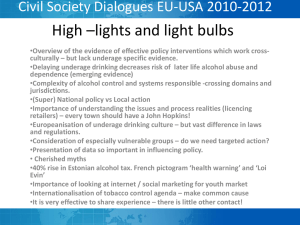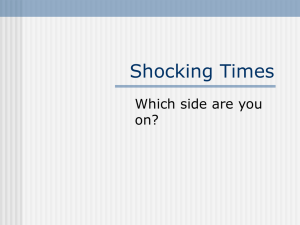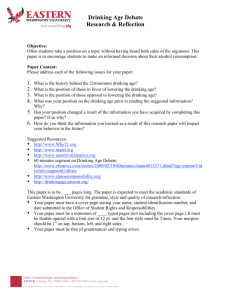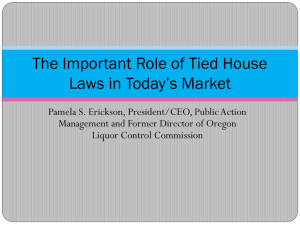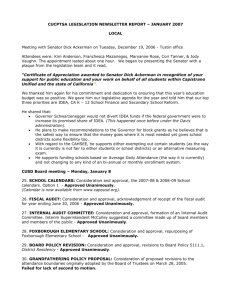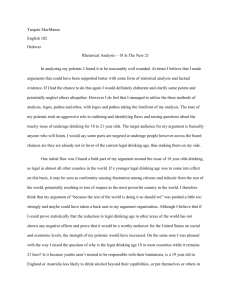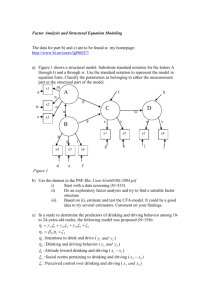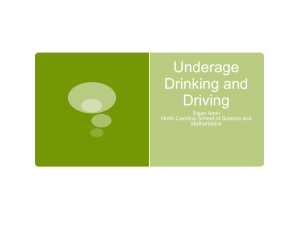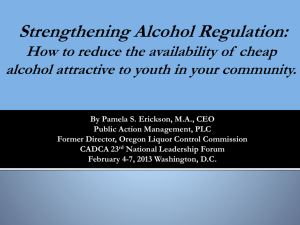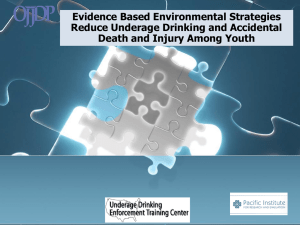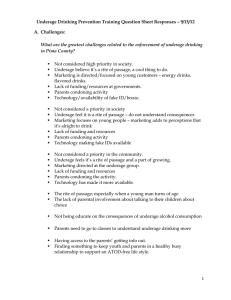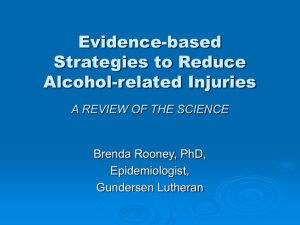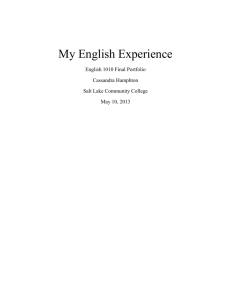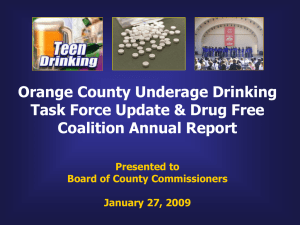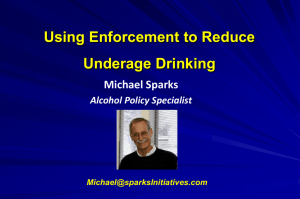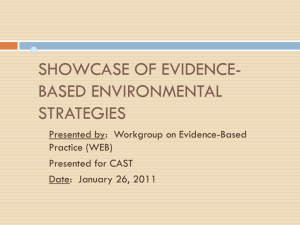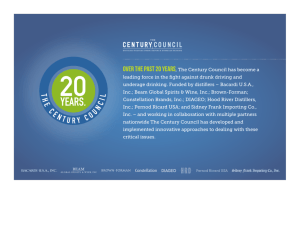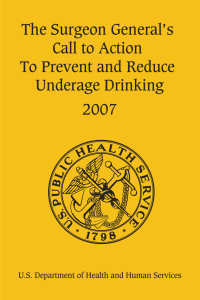Dr. Toben Nelson, University of Minnesota School of Public Health
advertisement
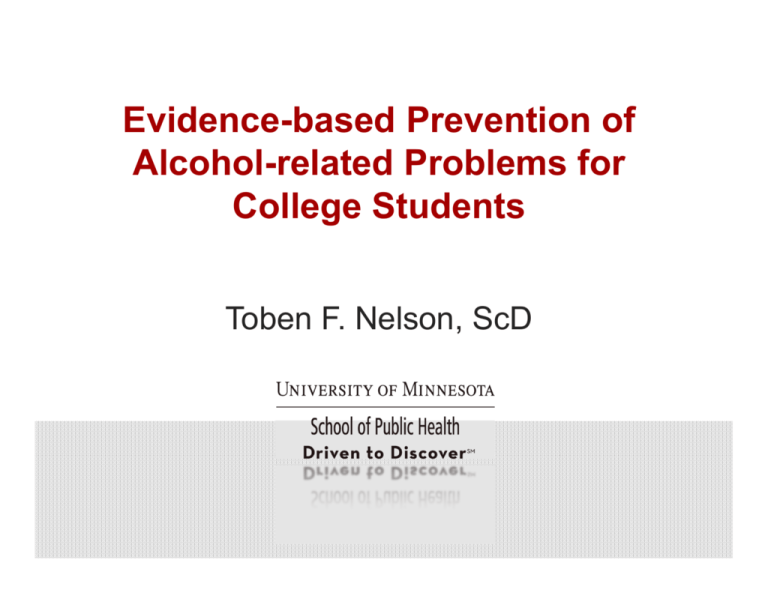
Evidence-based Prevention of Alcohol-related Problems for College Students Toben F. Nelson, ScD www.epi.umn.edu/alcohol Recommendations for Reducing College Student Drinking • Individual interventions for those at-risk for alcohol problems – norms clarification – cognitive-behavioral skills training – motivational interviewing • Responsible beverage service policies • Maintaining and enforcing – age-21 MLDA – Impaired driving laws • Restricting alcohol outlets • Increasing alcohol prices and taxes • Compliance checks in bars Source: NIAAA College Drinking Task Force (2002) A: Not too good. Toomey et al., in press Successful Interventions Effective interventions (they work!) + Broad reach (lots of students – everyone!) = Impact Tools to help implement evidence-based strategies • Adopt a public health perspective and language • Collect data on the environmental determinants of alcohol problems • Select evidence-based strategies • Work with people who have advocacy and political/strategic skills (or develop them yourself) • Be persistent RISK FACTOR OUTCOME Injury Liver disease Violence, Sexual Assault Binge drinking GI cancers, GI disorders Unintended Pregnancies Cardiovascular disease Child Neglect Crime, legal costs Lost productivity, absenteeism Alcohol Use Disorders Integrated theory of drinking behavior Legal Availability Public Policy & Institutional Policies/Structures Formal Social Controls Economic Availability Physical Availability Individual Risk Factors Drinking Behavior Adapted from Wagenaar & Perry, 1994 Problems that stem from alcohol use are primarily a function of availability Alcohol-related Problems Change the language of effective interventions Community standards for provision and consumption of alcohol Accountability to those standards Questions? Institute of Medicine: Reducing Underage Drinking Recommendation: Strengthen Minimum Legal Drinking Age Laws & compliance check programs in retail outlets Institute of Medicine: Reducing Underage Drinking Recommendation: Require all sellers and servers of alcohol to complete state-approved training as a condition of employment. Institute of Medicine: Reducing Underage Drinking Recommendation: Establish and implement a system requiring registration of beer kegs that records information on the identity of purchasers. Institute of Medicine: Reducing Underage Drinking Recommendation: Congress and state legislatures should raise excise taxes to reduce underage consumption and to raise additional revenues for this purpose. Top priority should be given to raising beer taxes, and excise tax rates for all alcoholic beverages should be indexed to the consumer price index so that they keep pace with inflation without the necessity of further legislative action. Institute of Medicine: Reducing Underage Drinking Recommendation: The alcohol industry should refrain from marketing practices that have substantial underage appeal and take reasonable precautions to reduce youthful exposure to other alcohol advertising and marketing activity. Strong Evidence… increasing the minimum drinking age results in a decrease in traffic casualties. enforcement affects the rates of underage purchasing. increases in alcohol taxes result in a moderate decrease in alcohol consumption & alcohol-related problems server training and policy interventions curb illegal sales to intoxicated and underage individuals Medium Evidence… increase in the number of outlets per capita increases consumption and alcohol-related problems. Alcohol: No Ordinary Commodity • Increase alcohol excise taxes, price • Reduce access (hours of sale, density) • Implement server liability laws • Implement alcoholimpaired driving countermeasures Babor et al, Alcohol: No Ordinary Commodity
